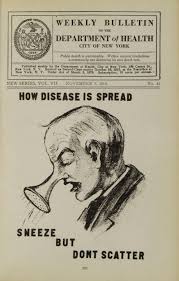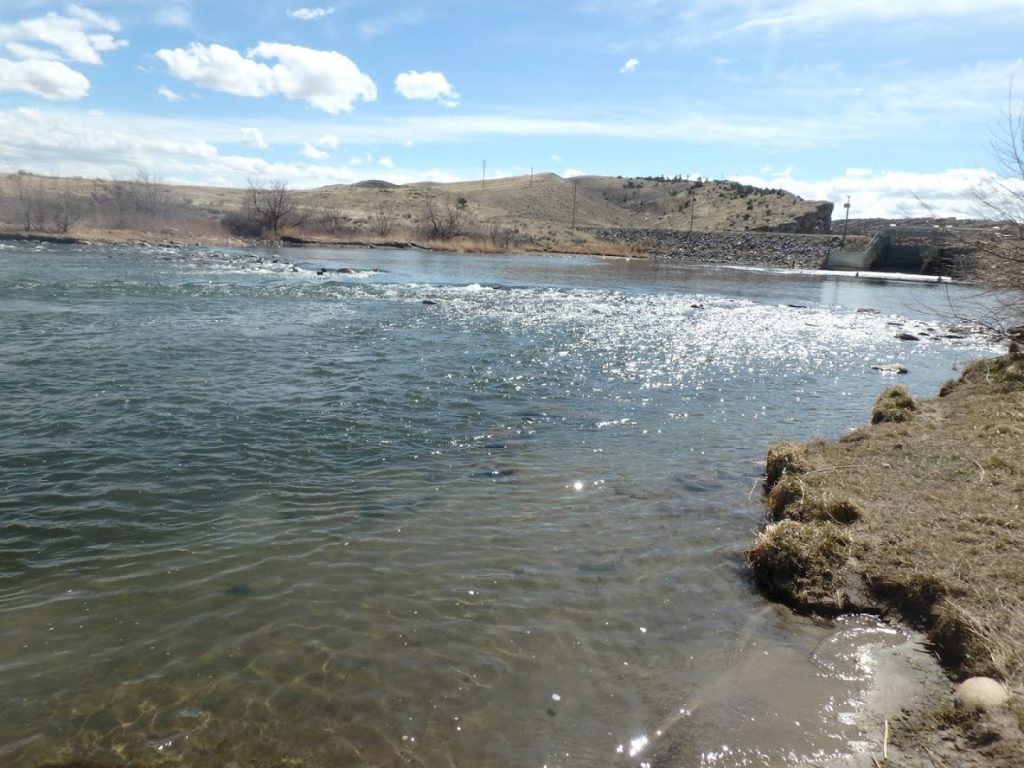
You get stuck. The things you see around you; the tilt and trend down to now and your memory of the past weeks; the things you’re looking to see in the day, days, and week after today; those fixed events already set or expected several weeks or a few months ahead. You’re somewhere between all of these states of time, states of being, and states of mind. With so much floating and swirling, you feel stuck, glued, gummed up.
It’s no wonder. Give yourself a break by remembering the definition of homophone—a word that sounds the same but has different meanings and spellings. Break/brake.
First, break things into a few pieces. Second, brake the rush and acceleration toward confusion and frustration, both of which curve into bad decisions.
Go back from your Day 48 of 2020 to Day 48 of 1918 and the experience of your family and ancestors. Covid-19 now. Influenza then. Pandemic. Pandemic. Break/brake.
Day 48 is October 25, 1918.
Mayme Downs dies as a volunteer nurse in Everett, Washington. Influenza kills her. She caught it while caring for a trained nurse, Cecilia Hart, who had died a few days earlier from influenza. Caregiver to caregiver, coffin to coffin. A larger group of the newly-died are on the front page of the Eagle Valley Enterprise, a local newspaper in Colorado. They are united in their cause of death—influenza or influenza-related factors. The groups are hordes in Pennsylvania with current case totals of 350,000. Almost half of them—150,000—are in Philadelphia. From one to hundreds of thousands, a person to a people, the clocks of the forty-eighth day chime for influenza.
The people have their ground, and across it life and influenza dance together.
Before today, many people had decided that alcohol was destructive. Haggling and arguing, they had voted to try to control liquor in their community. But influenza wants in on the debate—a belief exists among some of the residents in Macon, Georgia that liquor can help stave off the onset of influenza. The doctors aren’t sure quite where to settle as demand for liquor pushes against ordinances prohibiting its use. The law and the sickness clash.
In Berkeley, California students at the campus of the University of California aren’t entirely happy with the rule that you have to wear a mask. They feel strange behind the cloth, especially at night. Behind the masks some see an image of ghosts, others see muzzled dogs, still others, meanly, ridicule the unattractive for secretly enjoying the chance to cover up. And finally, there is a set of campus citizens that breathes politics like air—they cheer democracy at work with everyone having to put on a mask regardless of wealth, position, and status. Thus the face and the fibers strain.
Time bends for readers of the Journal-Star newspaper in Lincoln, Nebraska. They see an article where the symptoms of influenza appear in greatest detail. Sneeze by sneeze, cough by cough, they learn to know the signs that might occur at any minute. They’ll be equipped to launch into action wherever they are in their house. They also see an article stretching back to antiquity. Epidemics since the dawn of time, epidemics in the past century, epidemics that come and go and wave in the wind like wheat on the plains, it’s all part of life and surely no reason to panic. Of a short-term candle and a long-run cosmos.
And in the North Platte River, a truth of American life drifts in the slow, winding current. The people who live nearby learn that the Board of Health—the professionals and the experts—have ordered public closures for the next nine days. Life, at least how it’s lived together in groups, will halt. The people who live here also learn that it’s possible the ban will be lifted sooner locally if “conditions materially change for the better.” On one hand, time sawed into a stake of nine days and hammered into the ground. On the other hand, time billowing as a condition with an unspecified yet instinctive sense of improvement. That’s how tomorrow looks.
The river has muddy waters and soggy banks.
A thought for you on Day 48, April 29, 2020, forty-eight days after President Trump declares Covid-19 a national emergency—on the banks of the river. It was the North Platte but it could have been anywhere. You want to know more rather than less, the precise instead of the vague. So, a predicted or projected number of days feels good and feels right. Something to drive toward. This is defining the future by a date, which your experience tells you is one form of leadership. But that’s not the only thing we have on our Day 48. We’re adding to it a sense of conditions, various indicators of chosen gauges and quantities. These are slippery, though, because there’s disagreement over exact categories and the numbers within the categories. Conditions are, at root, conditional. You know that a conditional (or environmental or situational, if you prefer) future is sharply different from a date-defined future. Now, let’s bring into play another reality for your leadership—people will travel back and forth from one type of future to another. Most people will be temporary occupants of the future-as-dates or the future-as-conditions. A thousand questions and points come to my mind but I’ll just pick a handful of related ones for you: are you best at future-as-date or future-as-condition? Are you in one or the other today? Are you prepared to make the shift to the other? What problems do you anticipate in making such a shift? And can you envision a moment when, perish the thought, you actually have to shift back? Worthy questions, these, and they should at least get a few moments from you for a general response. Take a minute and look at the river.

(note to reader—I invite you to subscribe to this series/blog. The purpose of my posting in this series is the purpose of my enterprise at Historical Solutions—to explore the past in a new way that brings new and different value to you, both in the present (this minute) and on the edge of the future (what’s ahead or forward of this minute). The past is everything before now, the totality of all time before the present; history is a set of very small slices of the past that, for a particular reason, have been remembered. If you wish to contact me privately, please do not hesitate to text or call 317-407-3687)







